世界20カ国から参加者が集まる、3週間の起業家育成プログラム『Kyoto Startup Summer School(KS3)』は、スタートアップの世界で現在進行で起きている理論・手法・テクノロジーを一気に吸収する短期集中型のワークショップです。今回のレポートでは2週目に実施された多数のレクチャーとワークショップ、3週目に開催されたデモデイを取り上げます。
第1回の様子はこちらから:
[レポート]Kyoto Startup Summer School (KS3) Week1:現場で見つけたビジネスのアイデアの種を短期間で育てるワークショップ
KS3の2週目は、11つの講義と3つのワークショップ、さらに合間には講師たちから事業などにアドバイスを受けるメンタリング・タイムで構成されています。KS3は、世界中から個人で参加する学生や若き起業家の卵たちに加え、すでに事業アイデアを持つチームも参加しているのもひとつの特徴です。すでに活躍する若き経営者やアクセラレーターたちは、それぞれの専門性を活かした講義を行います。
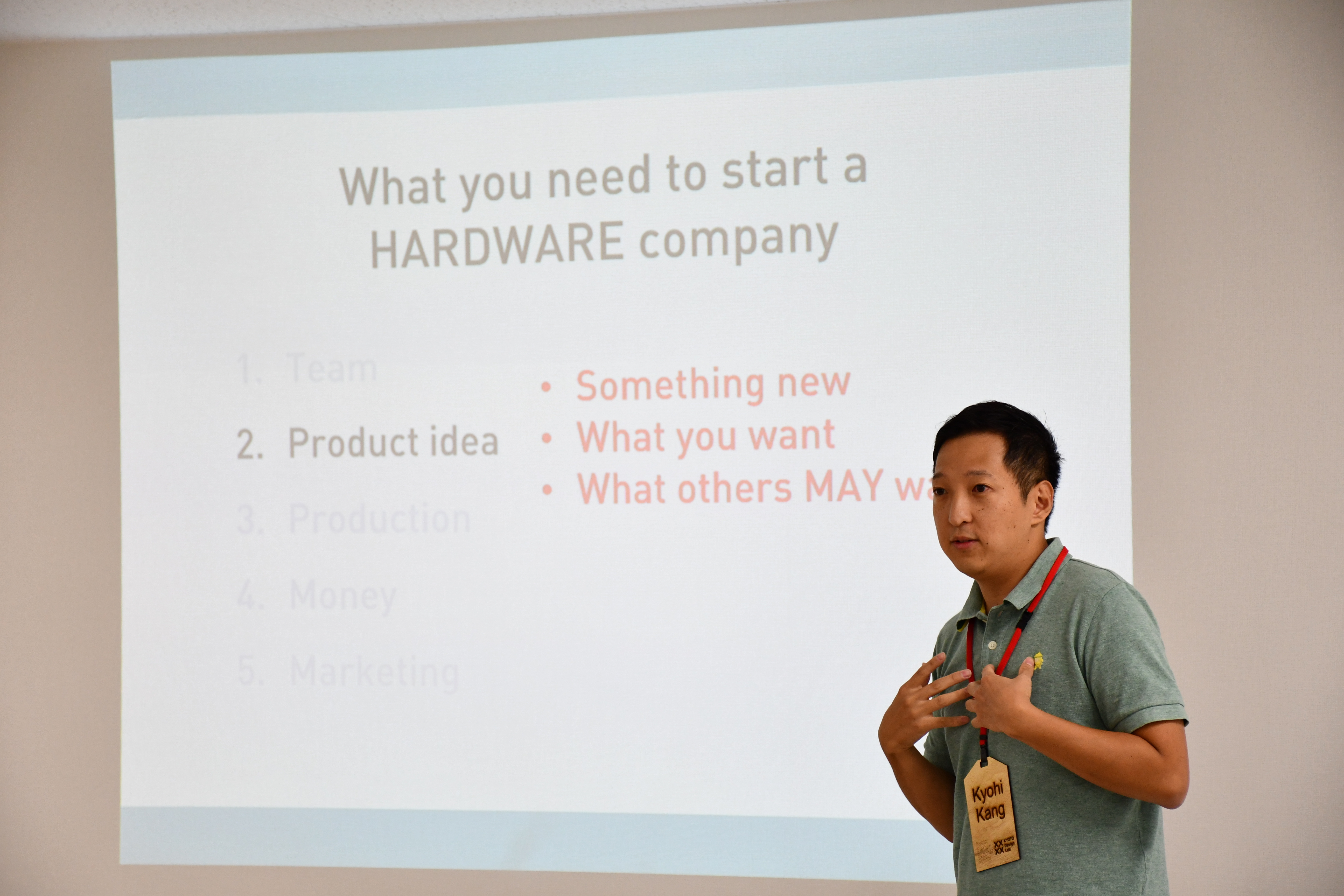
例えば、デジタル窓Atmophの協同設立者であるカンさんは、ハードウェアのスタートアップがどのようにしてクラウドファンディングで製作コストを獲得するのかを講義で行います。参加者らはスタートアップのメンバーになったつもりで、プロダクトの良さをどのように伝え、また、いち支援者になったつもりで、気に入ったプロダクトへ疑似投資を行います。こうしてプロジェクトを世に送り出す過程をロールプレイで学びます。
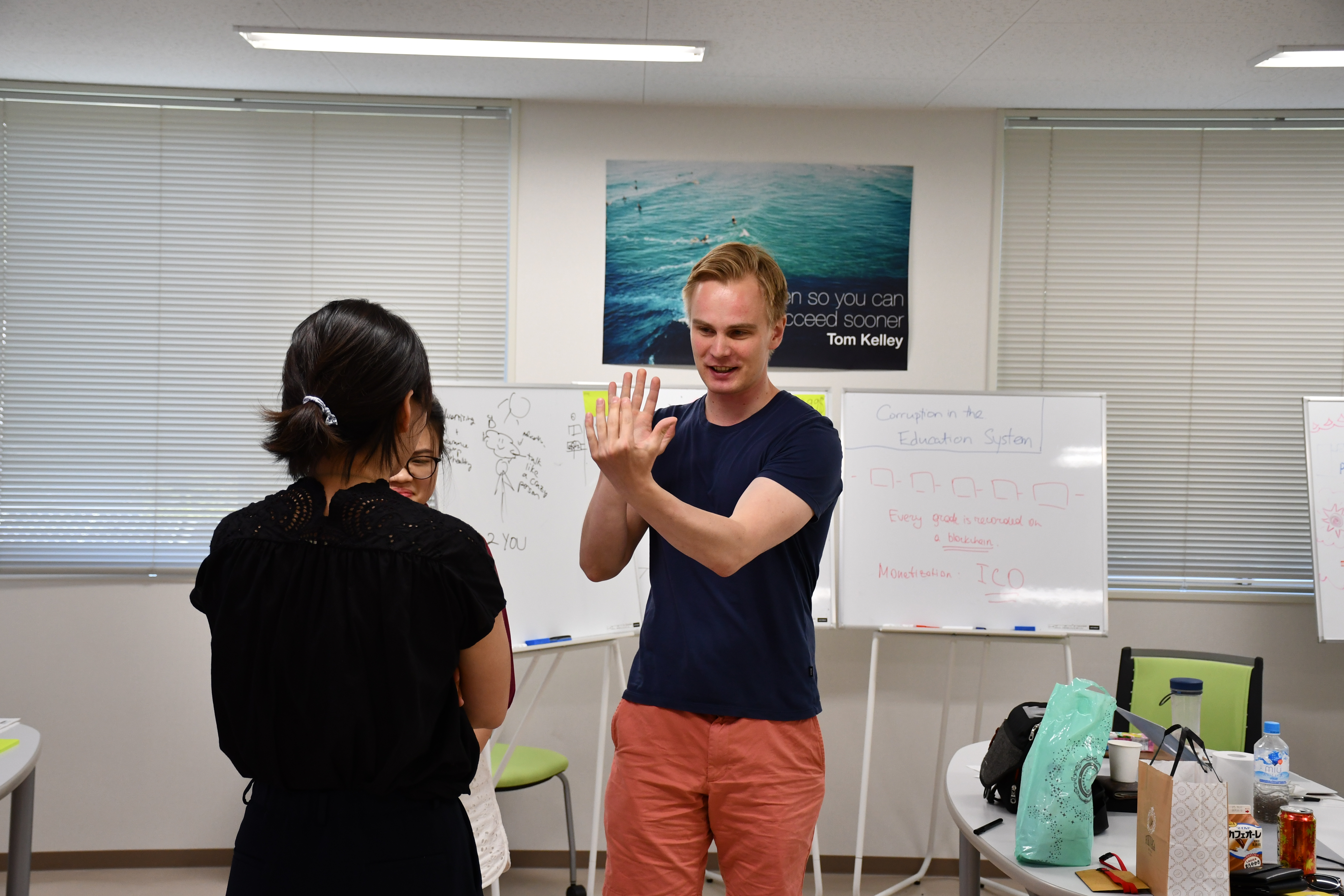
また、世界の起業家が集まるSlushの東京支部Slush TokyoのCEOであるアンティさんからは、ネットワーキングについての講義。スタートアップが技術やデザインの力だけでスピード感を持って世にプロダクトやサービスを広げていくことは困難とされています。有能な人材、厳しくも頼れる存在の投資家、さらに顧客との関係を築く役割など多岐にわたります。ディスカッションを通じて、どのように重要な役割を持つ人々との関係を構築するかが主題です。近視眼的になりがちな世界で、俯瞰的に考えることの大切さを理解することができたのではないでしょうか。
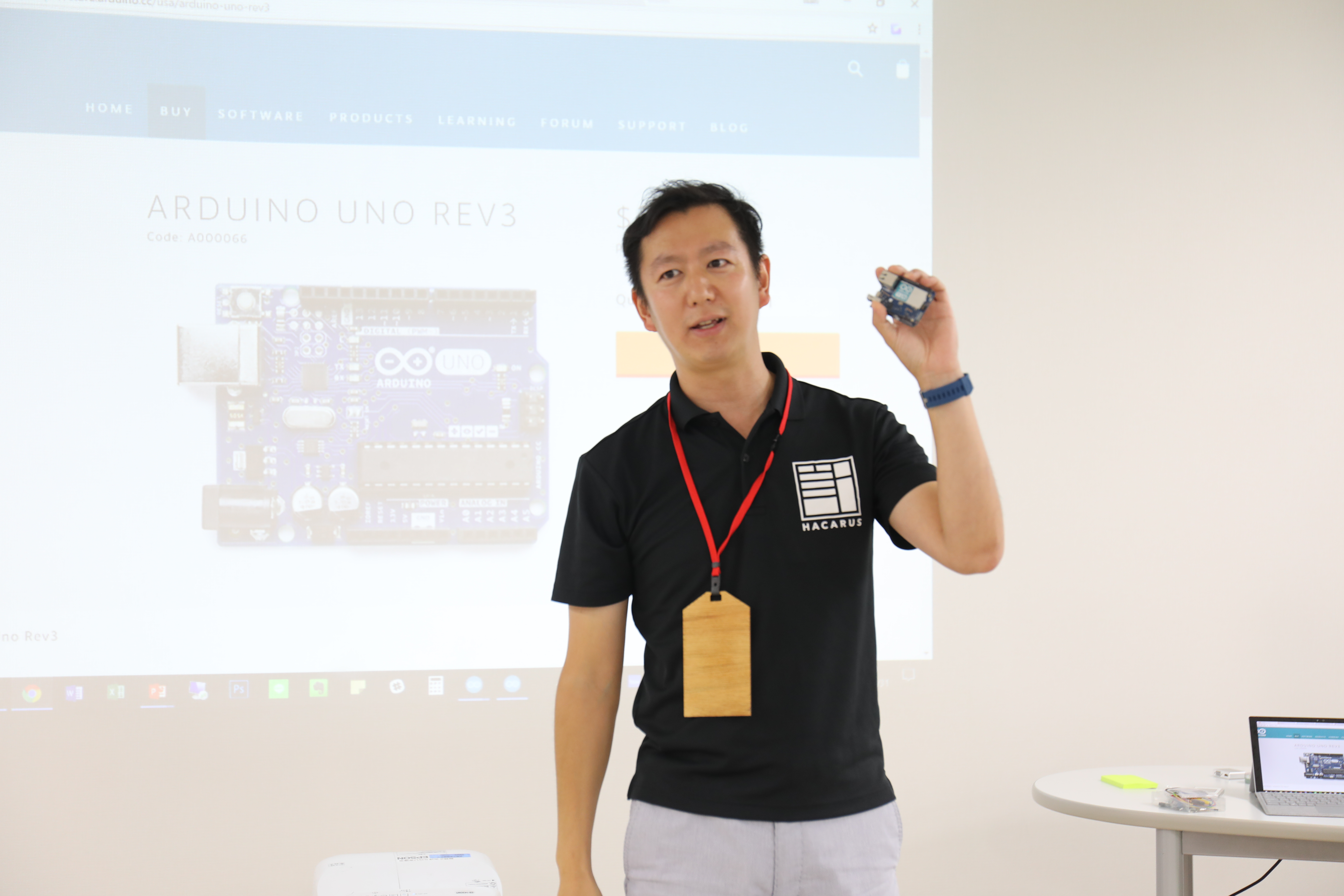
短時間のワークショップでは、ソフトウェアやハードウェアのイントロダクションが行われていました。小さなコンピュータであるArduinoの使ってセンサリングなどの実験を行ったり、3Dプリンタなどを使用するのに必須なモデリング技術をAutodesk Fusion 360を使って学びます。
参加者にはエンジニアを専攻する学生ばかりではありません。経営学や法学などを学ぶ学生もいます。また、デザインや建築を学ぶ学生でも、このジャンルはあまり馴染み深いものだとは言えません。講師だけでなく、学生感でも互いに教え、学びながらプロトタイピングを体験していました。
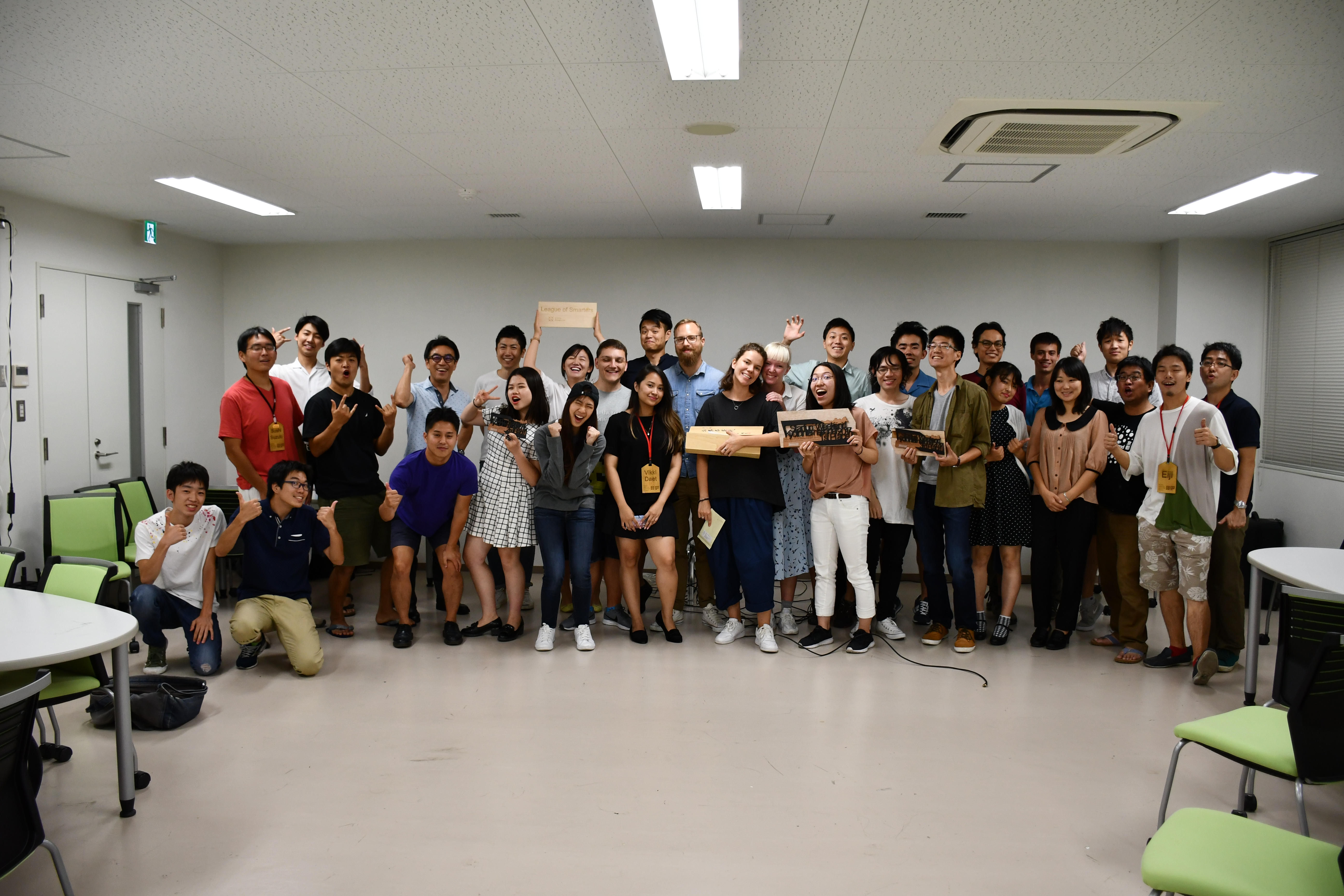
多角的な視点からスタートアップについて学んだ2週間はあっという間だったのではないでしょうか。2週目の最後に待っているのは、週末を利用して起業を目指すワークショップ「スタートアップ・ウィークエンド」への参加です。スタートアップ・ウィークエンドは、世界各国で開催されている巨大な起業コミュニティです。京都でもすでに何度も開催されており、今回は京都工芸繊維大学で行われることになりました。スタートアップ・ウィークエンドの参加者とKS3の参加者が混ざり合い、これまでの学びを活かして起業のタネを発表。最優秀賞はKS3参加者のコンビでした。個人参加はこのスタートアップ・ウィークエンドで修了となります。
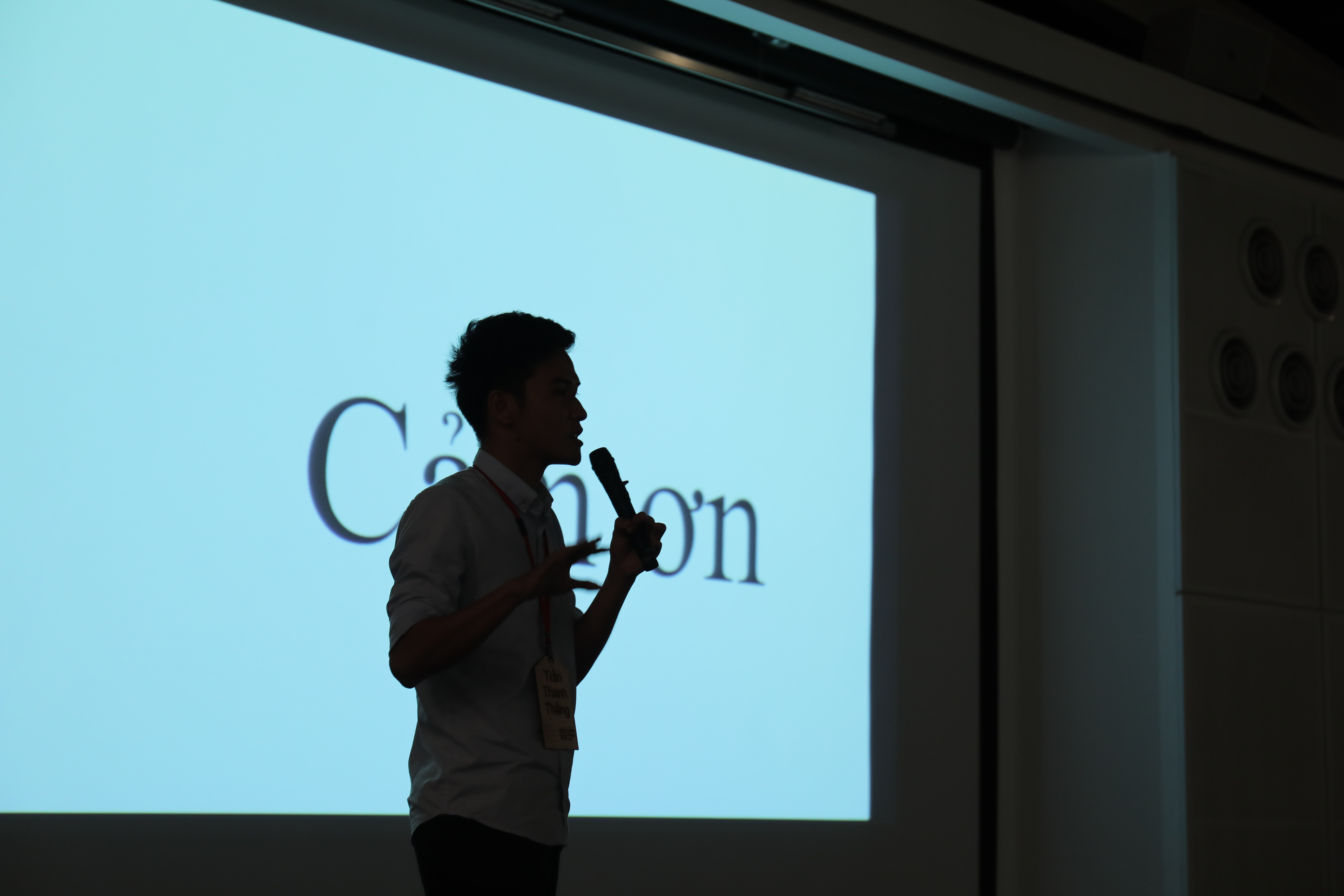
3週目はすでにスタートアップとして参加するチームが、これまでの経験を活かして事業をブラッシュアップしていきます。すべての参加チームが日本で発表することが初めてです。公開展示「デモデイ」には、著名な投資家として知られるアレン・マイナー氏も基調講演に登壇することもあり、皆、準備に力が入っています。デモデイでは、発展途上国で教育サービスのローンチに向けて動く2組、公衆衛生の工場に向けてバイオ・センサリング技術を用いたプロダクトの開発を狙うチームが発表を行いました。交流会ではプレゼンテーションの参加者や講師陣たちと遅くまで熱心に話をする参加者の顔が印象的でした。
3週間に渡る起業家育成プログラムを引率し、自身もレクチャーを行ったスシ・スズキ特任准教授はKS3の特徴を次のように話します。
2週間というこの短い期間に幅広いプログラムが盛り込まれていること、さらにそのプログラムを受講する人たちが多国籍であることです。起業には興味があるけれど、どこから手を付けていけばいいのかわからない。そんな、起業に踏み切ろうとしている人たちを後押しすることに注力しています。日本ではまだ起業文化が熱心ではないかもしれませんが、このプログラムでは企業内起業も範疇に見据えて展開していきたいと思います。
KS3の修了生が世界で活躍する日も遠くないのではないかもしれません。今後の展開にご期待下さい!プログラムのお問合わせは、こちらまで。
関連リンク:
・Kyoto Startup Summer School
・[レポート]Kyoto Startup Summer School (KS3) Week1:現場で見つけたビジネスのアイデアの種を短期間で育てるワークショップ
ライター紹介: 浅野 翔
1987年生まれ。2011年、京都工芸繊維大学造形工学課程 建築コース卒業。2014年、同大学大学院デザイン経営工学専攻 環境デザイン経営コース修了。同年よりデザインリサーチャー、サービスデザイナーとして活動を始め、2017年よりKYOTO Design Labのパブリケーション・マネージャーを務める。
Kyoto Startup Summer School (KS3) is a 3-week entrepreneurship program with participants from 20 different countries. It features a short, intensive program that teaches the latest theory, methodology and technology seen in the current world of startup. This report will cover the lectures and workshops of the second week, as well as Demo Day held at the end of the third week.
Click the following link for the report on the first week:
[Report] Kyoto Startup Summer School (KS3) Week 1: Workshop on Quick Development of Raw Startup Idea
The second week of KS3 is made up of 11 lectures, 3 workshops, and mentoring time where the participants can receive advice on their startup idea. The participants consist of students, young aspiring entrepreneurs, and startup teams that already have a business idea. Over the course of 2 weeks, young entrepreneurs and startup accelerators give them lectures on the topic of their own specialization.

For example, Mr. Kyohi Kang, a co-founder of Atmoph, lectures on how a hardware startup can cover its manufacturing cost with crowdfunding. He teaches the process of a startup project using a role-playing game. First, he guides the participants to form temporal startup teams and have each of them present their product. Then, each participant pretends to be an investor and invest on the product they like.

Mr. Antti Saarinen, a CEO of Slush Tokyo, lectures on networking. It is often said that the excellence of technology and design alone is not enough for a startup to quickly spread their product or service all over the world. In fact, there is a wide range of necessary elements such as brilliant team members, strict yet reliable investors, and establishment of relationships with clients. The main theme here, indeed, is to establish relationships with those who can play an important part. The participants must have learned the importance of stepping back and looking at the bigger picture even though the world today tempts us to be near-sighted.

The short workshop held on August 31st featured an introduction to software and hardware. The participants experimented with a small computer, Arduino, and also learned 3D modelling technique using Autodesk Fusion 360, which is a necessary skill to utilize 3D printer.
Not all the participants are engineering major, and some studies business or law. Even the design or architecture students are not quite familiar with this type of topic. Therefore, it was a good opportunity for students to help each other while experiencing prototyping.

The two weeks of learning about startup from various perspectives have flown by very fast. At the end of the second week, Startup Weekend has been held in Kyoto Institute of Technology. It is a large-scale entrepreneurship event that features a workshop of creating a startup idea within one weekend. This time, the participants of Startup Weekend and those of KS3 have collaborated, utilized the lessons from KS3, and presented startup ideas in the end. The first prize was given to a team that consists of KS3 participants. Startup Weekend, indeed, marked the completion of KS3 for the individual participants.

The third week was spent on brushing up on startup teams’ business idea. Every team has eagerly practiced their pitch in preparation for Demo Day, where they presented their idea in Japan for the first time. On Demo Day, a keynote speech was first given by Mr. Allen Miner, a notable startup investor. Then, two teams have presented the idea of launching new educational service in developing countries while another team presented the idea of a product that uses bio-censoring technology to improve health. To conclude the Demo Day, a wrap party was held that night where the participants and visitors enjoyed networking with each other.
Professor Sushi Suzuki, who is an organizer and a lecturer in KS3, described the characteristics of KS3 as following:
“What is unique about KS3 is that a wide range of topics are packed into the two-week format, and that the participants are very multinational. We focus on supporting those who are interested in entrepreneurship but do not know where to begin. Even though entrepreneurship culture is not very prevalent in Japan yet, we would like to develop the program while also taking intrapreneurship into account.”
It might not be long before we see a KS3 alumni taking the world by storm. Please click here for the inquiry about KS3.
Related Links
・Kyoto Startup Summer School
・[レポート]Kyoto Startup Summer School (KS3) Week1:現場で見つけたビジネスのアイデアの種を短期間で育てるワークショップ
Writer: Kakeru Asano
Kakeru Asano was born in 1987, Japan and spent his youth in Nagoya city. He took a master degree in design, engineering and management from Kyoto Institute of Technology in 2014. He has worked as a design researcher and service designer based in Nagoya since 2014, and he jumped into KYOTO Design Lab in 2017 as a publication manager.